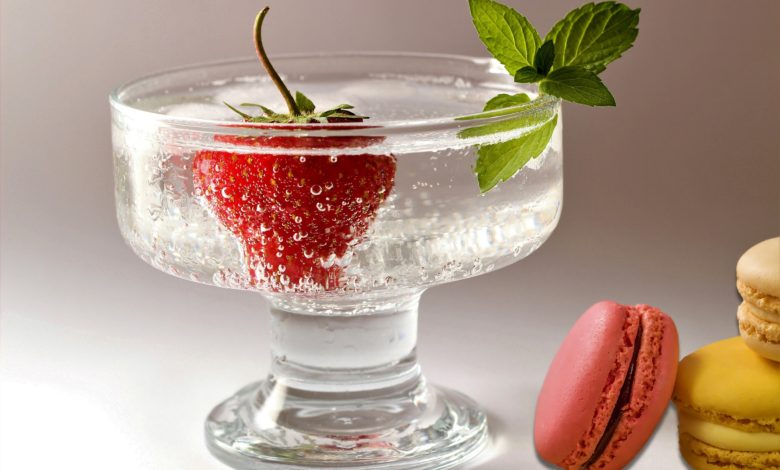What You Need to Know About Carbonated Drinks

Everyone has heard and drank drinks such as cola and soda, and may even be familiar with its various drinkable forms. So what is known about carbonated drinks? What are these actually? Sodas and other carbonated soft drinks often contain carbonated water (dissolved carbon dioxide water), some type of sweetener, and natural or artificial sweetener. In its simplest form, carbonated water is plain water that has been carbonated (under pressure, filled with carbon dioxide gas). Carbonated water contains more carbon dioxide than plain water. The carbonation process produces those familiar tiny bubbles, but also carbonic acid, a weak acid that does not make the body more acidic.
What Makes Carbonated Drinks Carbonated or Sparkling?
Carbon dioxide has no color and is tasteless. The carbonic acid formed during the carbonating process is what creates the loved fun foam and that tingling sensation. The colder the beverage and the tighter the cap, the more fizzy the drink will be. The most carbon dioxide water can handle is about 8 grams per liter. So, when there is excess carbon dioxide, it will remain in the water until the pressure is released, the carbon dioxide comes out and the beverage runs out of gas. Carbonation can also occur naturally. This applies to naturally carbonated mineral water that absorbs carbon dioxide from the soil. The carbonation or carbonation created during a process in which carbon dioxide is pumped into the beverage at a high pressure level can also be man-made. The can is then sealed to keep the carbonation in.
Where Did Carbonated Drinks Come From?
The carbonation process was first invented in England in 1767 by a man named Joseph Priestley. The process was not commercialized until 1786. Sodas first went on sale in 1835, which is also when people began to add flavor to their sodas. After this happened, flavored sodas became a mainstay in Western culture and the beverage of choice for many consumers. Initially, carbonated drinks were only stored in bottles because it is a difficult task to keep carbon dioxide in without trying to get through the joints inside the cans. Nowadays, sodas can be found in bottles and cans.
Benefits of Drinking Carbonated Water
Carbonated water is as effective as plain spring water or pure water in moisturizing the body. Drinking the right amount of water is also vital, so if mineral water helps you drink enough fluids, drinking carbonated water is a positive step to being healthy. If drinking too much soda causes bloating, the intake should be balanced with plain water. Tonic, soda, and mineral water often contain sodium, minerals or flavorings. That’s why it’s so important to read beverage labels to avoid hidden sugar. Below, carbonated, carbonated drinks are discussed in general terms to help you find the right one.
Seltzer
Seltzer water is plain water that has been carbonated. Seltzer originated in Germany, where naturally occurring carbonated water is bottled and sold. He became very popular so European immigrants took him to the United States. Seltzer generally does not contain added minerals, which gives a more authentic aquatic taste although it depends on the brand. Due to its neutral profile, some brands flavor seltzer juice sometimes using natural fruit essences and oils.
Soda
Like Seltzer water, soda is normal water to which carbon dioxide is added. However, minerals such as potassium bicarbonate, potassium sulfate, or table salt are added to the soda to enhance the taste. These alkaline substances are added to carbonated water to neutralize its acidity and mimic the flavor of naturally occurring mineral water.
Tonic
Tonic drink is carbonated but unlike other carbonated options it contains additional sweeteners and flavors, such as quinine, a compound isolated from the bark of cinchona trees. Quinine is a chemical that adds a bitter taste to the tonic drink. Tonic has been used in the past (when it contained significantly higher quinine) to prevent malaria in tropical areas where the disease is prevalent. Today, quinine is only found in small amounts in the tonic drink to impart a bitter taste. Tonic is often sweetened with high fructose corn syrup or sugar to improve the taste. This drink is often used as a mixer for cocktails (especially those made with gin or vodka).
Mineral water
Mineral water can mean plain or sparkling water from underground sources and contains naturally occurring minerals.
Flavored mineral water
Fruit flavors are added to some types of mineral waters. Many also add sugar or artificial sweeteners. Labels should be read to see if they contain added sweeteners. Fruit flavor can increase acidity, so those with stomach sensitivity should avoid them.
Do Carbonated Drinks Have Adverse Health Effects?
While baking soda or soda can be refreshing, some people worry that they could be bad for health. There are some claims about sodas. The first is that it can steal calcium from bones. Another is that it can erode tooth enamel. Yet another is that it can irritate the stomach. These concerns stem from past studies on the health effects of carbonated soft drinks, also known as sodas or colas. These are beverages with chemicals and artificial or natural sugars. Studies have actually linked carbonated soft drinks with lower mineral density in bone, but they have shown that it is not carbonation that is to blame but phosphoric acid in soft drinks. Studies have also shown that when soft drinks replace high-calcium foods such as milk, it may occur that bone health can deteriorate. A different study found that tooth erosion was not caused by carbonation, but by the high acid content in most carbonated beverages. However, flavored carbonated water can contribute to tooth enamel decay. Sweeteners or flavorings make water significantly more acidic, which causes tooth enamel to erode. While cola and other sodas are associated with adverse health effects, carbonation itself is not harmful, according to doctors.
Everyone has their favorite sodas. Some like soda, others like tonic and even champagne. All are bubbly and satisfying in their own right. Many types of mineral water are healthier hydration options because they contain fewer calories or sweeteners than sugary drinks. However, the carbon dioxide found in these sodas can contribute to gas and bloating in some people. Therefore, for people who suffer from stomach upset when drinking too many sodas, it may be time to cut down on these drinks or choose another source of healthy liquid. After all, these drinks are effervescent liquids that release carbon dioxide under normal atmospheric pressure conditions.





